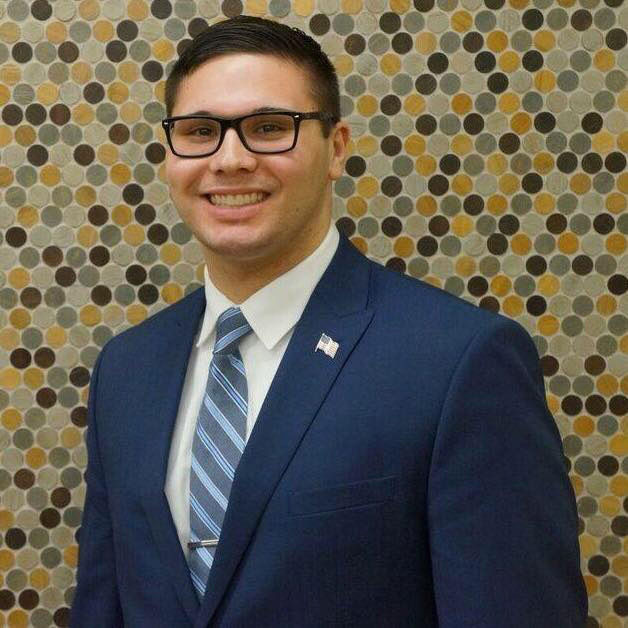Opinion: Honoring President Kennedy’s legacy
Anthony Erhardt is a Paralegal Studies major and a memeber of the Kent State College Democrats. Contact him at [email protected]
April 4, 2017
The 100th anniversary of former President John F. Kennedy’s birth will be celebrated next month on May 29.
In honor of Kennedy’s centennial, I think it is important as the president of the College Democrats that we pay tribute to his legacy and celebrate his life instead of focusing on his assassination.
Sorry, Republicans: As much as you want to convert Kennedy into a Republican postmortem, he still belongs to us.
From a personal standpoint, Kennedy means a great deal to me: He’s my hero, the reason I care about politics and why I want to enter public service. The iconic line from his inaugural address, “And so, my fellow Americans: ask not what your country can do for you — ask what you can do for your country,” forever left an indelible mark on my ideology and shaped the way I view politics.
To me, that quote serves as a call to service and a challenge for Americans to think not of themselves but how they can help others. Kennedy’s sentiments inspired a generation of Americans and led the public to view the government as an agent of good, an institution that would stand up for the American ideals of justice, equality, loyalty and diplomacy.
Considering the events that followed his death, it’s no wonder Kennedy is so fondly remembered and why Americans have lost faith in their government: lies and deception with Vietnam, the Watergate scandal, President Nixon resigning in disgrace, the Iran Contra Affair, the Iraq War and the likes.
In fact, according to the polling organization Gallup, JFK has the highest average approval rating of any president in history at 74 percent.
President Kennedy was far from a perfect human being or president; he served just less than 3 years in office along with his beautiful and elegant wife, Jacqueline Kennedy, during a fabled 1000 days known as “Camelot.”
While holding the Oval Office, Kennedy established the Peace Corps, a volunteer organization which aids impoverished nations in economic and social development. As of 2015, 220,000 Americans have served in the Peace Corps in 141 countries, according to the peace corps website.
Perhaps most importantly, Kennedy avoided a nuclear confrontation with the Soviet Union during the Cuban Missile Crisis in 1962. Kennedy ignored calls from his Joint Chiefs of Staff to initiate military action and use first strikes against the Russians and Cubans; instead, he resolved the matter diplomatically.
Unfortunately, many of Kennedy’s bold proposals — such as the Civil Rights Act and putting a man on the moon — would not come to fruition until after his death as a tribute to the martyred president.
During the turbulent times of the ’60s and the fight for racial equality, John F. Kennedy gave a widely televised address on civil rights, proclaiming, “And this Nation, for all its hopes and all its boasts, will not be fully free until all its citizens are free.”
Robert and Ted Kennedy, brothers of John F. Kennedy, carried on the former president’s vision as prominent U.S. Senators from New York and Massachusetts respectively. Joe Kennedy III, Kennedy’s great nephew, serves in the U.S. House of Representatives for Massachusetts and acts as a passionate health care advocate.
Before former President Barack Obama, Kennedy embodied the hope and change that was possible in the United States. My personal favorite quote from Kennedy was when he proclaimed, “Those who dare to fail miserably can achieve greatly.”
This quote encapsulates what it means to be an American and what it means to dare to have ambitious goals and aspirations for our country.
A portion of an article from LIFE Magazine best sums up President Kennedy’s legacy, his lasting impact on history and why what he stood for matters to this day:
“He said we should go to the moon before the decade was out, and we did. He said we should engage with the rest of the world in the postwar era — that the United States now had to assume such a leadership role — and we did. He said we should not ask for favors, but should ask how we might contribute to the greater societal good. He said much that will live down the decades and even centuries, and then he was cut down — in his prime as they say. Today he rests in peace in Arlington National Cemetery, where the plaque on his grave is simple and stark. He will never be forgotten.”
Anthony Erhardt is the president of the College Democrats, contact him at [email protected].
























